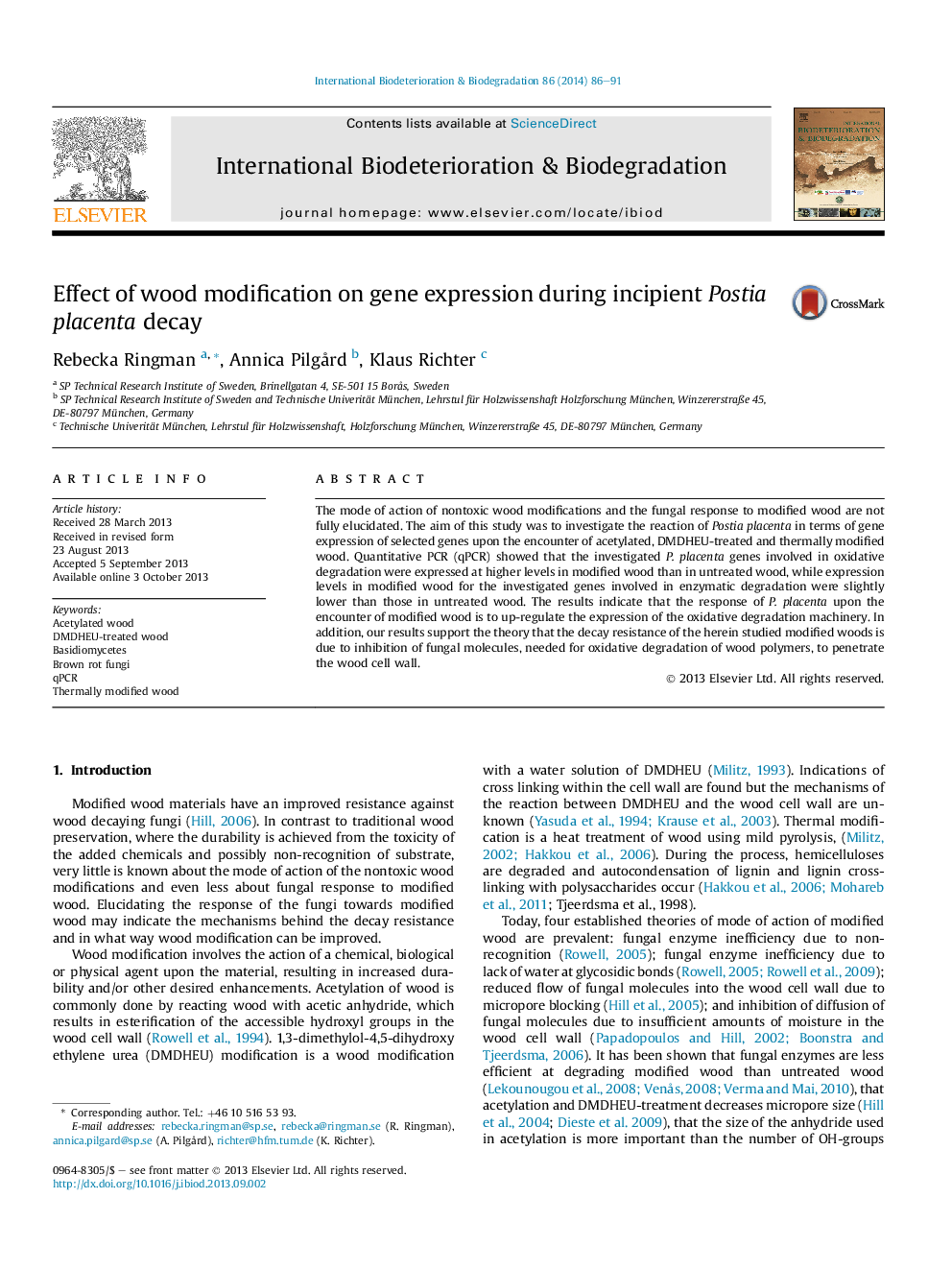| کد مقاله | کد نشریه | سال انتشار | مقاله انگلیسی | نسخه تمام متن |
|---|---|---|---|---|
| 4364856 | 1301727 | 2014 | 6 صفحه PDF | دانلود رایگان |

• Postia placenta response to modified wood is investigated.
• Using qPCR, P. placenta gene expression during incipient decay is examined.
• Genes involved in oxidative degradation of wood are up-regulated in modified wood.
• Decay resistance may be due to lack of moisture in the wood cell wall.
The mode of action of nontoxic wood modifications and the fungal response to modified wood are not fully elucidated. The aim of this study was to investigate the reaction of Postia placenta in terms of gene expression of selected genes upon the encounter of acetylated, DMDHEU-treated and thermally modified wood. Quantitative PCR (qPCR) showed that the investigated P. placenta genes involved in oxidative degradation were expressed at higher levels in modified wood than in untreated wood, while expression levels in modified wood for the investigated genes involved in enzymatic degradation were slightly lower than those in untreated wood. The results indicate that the response of P. placenta upon the encounter of modified wood is to up-regulate the expression of the oxidative degradation machinery. In addition, our results support the theory that the decay resistance of the herein studied modified woods is due to inhibition of fungal molecules, needed for oxidative degradation of wood polymers, to penetrate the wood cell wall.
Journal: International Biodeterioration & Biodegradation - Volume 86, Part B, January 2014, Pages 86–91